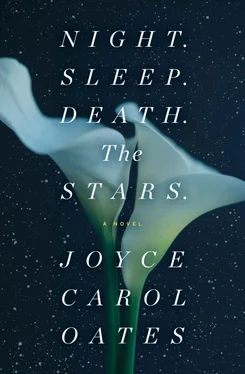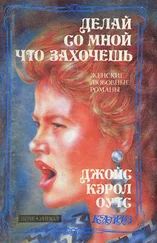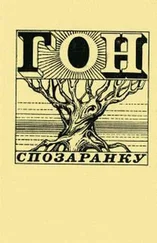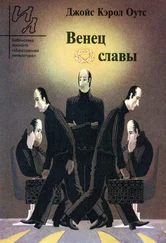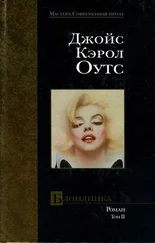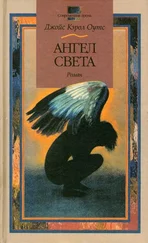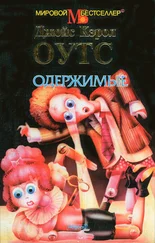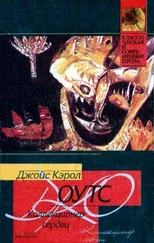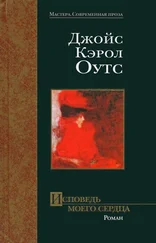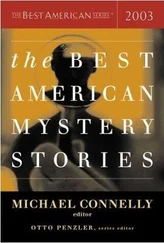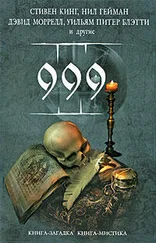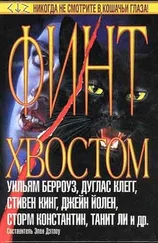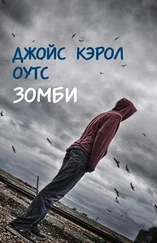Vincent’s Children’s Hospital, lately of Columbia Presbyterian, New York City, has been a witness to the violent Taser assault who, though he speaks English almost fluently in normal circumstances, has virtually forgotten his English now, in a state of animal panic. Dr. Murthy will claim that the police officers had so frightened him, confused him, he could barely comprehend what they were shouting into his face, which they interpreted (he supposed) as refusing to comply with their orders; he had no idea why they’d forced him to pull his Honda Civic onto the side of the highway since he had not been speeding, why they’d dragged him from the car with such force that his left shoulder was dislocated; no idea why they were demanding to see his ID, and so when, in great pain, he began to remove his wallet from his coat pocket, this was (evidently) a wrong move, for one of the police officers shouted obscenities at him, grabbed him and flung him against the hood of his vehicle; slammed his face against the hood, lacerating his forehead and breaking his nose; threatened to “light him up”—(with what Dr. Murthy in his terrified state had no idea was a Taser, and not a firearm); at this point Dr. Murthy, twenty-eight years old, born in Cochin, India, moved to New York City with his parents at the age of nine, was convinced that the unaccountably furious policemen would murder him, for what reason he had no idea; Dr. Murthy did not want to think that they’d stopped him on the Hennicott Expressway because of the color of his skin which with some pride he did not think resembled “black” skin—though certainly you would not mistake it for “white.” True, the officers might have surmised from Dr. Murthy’s suit, white shirt and necktie that he was (probably) not a drug dealer, or a “thug,” and would (probably) not be a threat to the well-being of one or either of them if they took him into custody without extreme force; though very frightened, weak-kneed, Dr. Murthy was determined to behave as if he were not “guilty” though he wasn’t at all sure what he might be guilty of, or what the enraged police officers hoped to charge him with. Drugs? Murder? Terrorism? Dr. Murthy was uneasily aware of a surfeit of mass murderers, random snipers, shooters, and “terrorists” in the United States in recent times, dominating news headlines and cable TV so you might surmise that the Hammond police officers were but reasonably on the lookout for such individuals who carried with them, on their person and in their vehicles, arsenals of weapons; very dangerous persons whom law enforcement might be tempted to shoot on sight. The homeless, the mentally ill, with or without (visible) weapons might be considered dangerous to law enforcement also, but Dr. Murthy did not resemble a mentally ill person, or a likely mass murderer; the tincture of his skin, olive-dark, like his very dark eyes, might have suggested, to the suggestible, a “terrorist”—but by this time the police officers had examined Dr. Murthy’s laminated ID card from St. Vincent’s Children’s Hospital which identified him as a staff physician—AZIM MURTHY, M.D. Nor were there weapons, drugs or drug paraphernalia on his body or in his Honda Civic as the officers would subsequently discover.
In their police report the officers would claim that Dr. Murthy’s vehicle was “weaving” in traffic; when the police cruiser came up close behind him, flashing its red light, the alarmed driver increased his speed as if to “escape” the cruiser; grounds for suspecting drugs in the vehicle, or inebriation in the driver; and so they stopped him, for public safety; according to both officers the driver was immediately “resistant”—“shouted at them in a foreign language obscenities, profanities”—“made threatening gestures”; for officer safety they had to drag him from behind the wheel of his car, as he resisted they were obliged to use force, in an effort to handcuff him they had to use “maximum” force; at which time another vehicle pulled off the Expressway, a “suspicious-looking” Toyota Highlander driven by an individual whom the officers believed to be an accomplice of the man being arrested; an individual who presented a “clear and present danger” to the officers by shouting at them, waving his fists, threatening to shoot them and seeming to be reaching inside his coat, as if for a weapon—again for officer safety this individual had to be overcome, thrown down, Tasered with a stun gun (fifty thousand volts at twenty-five watts) and handcuffed.
This “aggressive and threatening” person, initially believed by the police officers to be an accomplice of Azim Murthy, subsequently identified as John Earle McClaren, sixty-seven, of Old Farm Road, Hammond, New York.
As it would turn out neither Azim Murthy nor John Earle McClaren had a prior police record. No drugs or weapons would be found in Dr. Murthy’s Honda Civic or on his person, and no drugs or weapons would be found in Mr. McClaren’s Toyota Highlander or on his person. No connection between the two men would be established. It happened that Tasers were used on both men—for reasons of “officer safety”—but Dr. Murthy did not lose consciousness or lapse into a coma as John Earle McClaren did, perhaps because he was forty years younger.
OCTOBER 2010
Alight chill rain but she doesn’t want to come inside just yet.
Gusts of wind, a sound of wind chimes.
So happy!—at the faint, fading sound of the wind chimes hanging from several trees at the rear of the house.
Is it selfish, she wonders. To be so happy.
Something about the wind on this October afternoon, rich ripe autumnal smells, wet leaves, a grainy sky, wind chimes with a distinct silvery tone, that makes her almost faint with yearning as if she were (again, still) a young girl with her life before her.
All that you have, that has been given you. Why?
She has been (carefully) pouring seed into bird feeders, that hang from a wire above the deck. Corn, sunflower seeds. In nearby trees the birds are waiting—chickadees, titmice, sparrows.
It is such a small task. Yet it is crucial to her, to execute it correctly.
Realizing then that she has been hearing, from inside the house, a ringing phone.
He’d been electrocuted—had he? Struck by lightning?
Not once. More than he could count.
All he can remember—torso, throat, face. Hands, forearms lifted to protect his face.
Bolts of electricity. Stunning, burning. Sizzling flesh he’d smelled—(had he?).
Mistake. His mistake.
Not a mistake: had no choice.
NOT A MISTAKE. BLUNDER, MAYBE.
What’s a blunder but a soft sort of mistake.
Words uttered without thinking. Actions recklessly undertaken like you’ve forgotten your age (what the hell’s his age?—not young). Clumsy footwork taking you somewhere you’d never intended to go, Jesus!—and now can’t turn back.
Whitey wants to argue. Plead his God damn case.
BUT SOMEHOW, WHITEY IS MUTE.Tongue too large for his mouth, gluey sensation in his throat. Can’t speak?
Lightning-bolt struck his throat. Burnt out his vocal cords.
He, John Earle McClaren—“Whitey”—all his life the very reverse of mute .
Could speak, for sure Whitey would protest. Could summon words, syllables, sounds articulated by (damp, not dry) tongue, (damp, not dry) interior of mouth, however the miracle of speech is executed, if he could remember how —Whitey would plead his case not to a jury but to the electorate, see how he does at the polls. Whitey McClaren would be vindicated!—he is sure.
Читать дальше
